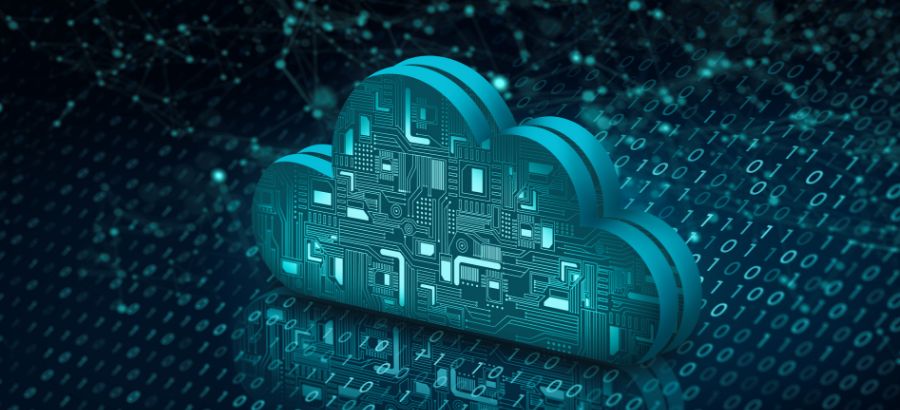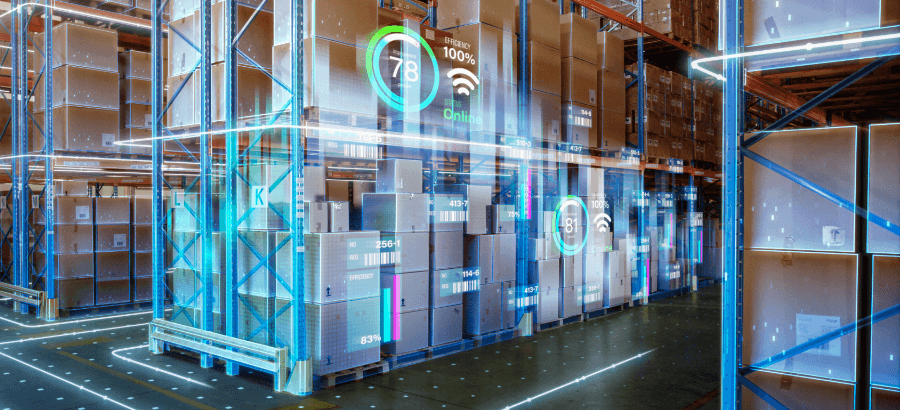There have been significant waves of disruptions in the supply chain and like other markets and industries that have experienced shifts, manufacturers can turn to technology to overcome challenges and streamline operations. An example of such technology is seen as a cloud-based enterprise resource planning (ERP) solution. Cloud ERP enables manufacturing organizations to achieve connectedness and real-time visibility of all internal and external data that affects operations, which helps them better anticipate and react to supply chain disruptions.
What is Cloud ERP software?
Cloud ERP is an ERP system that is deployed in the cloud platform as opposed to on-premise. It is a type of software as a service and this solution is increasingly flexible and scalable to address rapidly changing business needs.
According to G2, 62.7% of organizations are opting to go with cloud-based ERP systems over on-premise software. Cloud ERP application has become increasingly popular in the manufacturing industry for several reasons. First and foremost, it saves manufacturers from using extensive hardware and software resources. The solutions are easy to manage and provide real-time access to warehouse operations and inventory data with minimal hardware complexities. Most importantly, they bring significant cost savings as they incur minimal maintenance costs.
Let us delve into the main benefits of Cloud ERP for manufacturing companies and explore key factors that make it an ideal solution as you secure a digital future:
Benefits of Cloud ERP
Collaboration and accessibility for improved efficiency and productivity
- Cloud ERP is a solution that enables manufacturing companies to integrate all their processes, connects departments for better communication and provides full-view visibility across the company for improved decision making. All data is located centrally in one place where it can be viewed easily at anytime and anywhere. This information includes stock quantity levels, production schedules, quality control checks and workflow, allowing companies to have an accurate view of all the areas of the business at once. This integration and overview not only enhances the way operations are running but allows fresh insights to streamline production, react to operational constraints or disruptions and make informed decisions for the future.
Scalability for supply chain agility
- Just like an on-premise option it can also be scaled, adjusting to your company requirements quickly as you grow. Without the challenges of adding more servers for more users, locations or subsidiaries, cloud-based ERP solutions make scaling a business easier. As a business grows, the cloud ERP grows.
Customization and integration for evolving business needs
- Just as cloud can scale with an organization, it can also be more easily customized to fit business needs—from the start or over time, as a business grows and evolves. It can be easily fitted to a business’ needs, and new modules can be added to cloud systems without downtime or acquiring new hardware. Cloud systems are also able to easily integrate with many other solutions and technologies. Manufacturers should not underestimate the measurable benefit integrated solutions can have on business success. This provides enhanced visibility into your entire supply chain, helping employees, departments, and suppliers to collaborate to offer a better customer experience.
Reduced operational costs for strategic advantage
- On-premise ERP systems need manual and continuous maintenance to keep up with hardware and software updates. Cloud offers organizations lower operating costs as this is a software as a service and includes implementation, backups, updates, and ongoing requirements to ensure suitable performance of the ERP system.
Why ERP in the Cloud?
Considering the benefits there is return-on-investment on implementing Cloud within your organization to collaborate and compete on a global level. It can assist manufacturers to improve operations and processes and explore new business models for profitability. The flexibility of Cloud is an essential ingredient for businesses to be more resilient and agile during ongoing and future supply chain disruptions. To secure a digital future manufacturers need an ERP platform designed specifically for manufacturers and their unique needs that is cost-effective, scalable, secure, and allows adoption of new technological capabilities. The cloud is the best strategy to enable sustainable long-term business growth.








3 thoughts on “What is Cloud ERP?”
When will Syspro be available on a true SaaS platform as opposed to the current hosted model?
Discover the modern ERP system that utilises artificial intelligence to transform your business processes. Moving your current traditional ERP systems to the NextGen Cloud expedites or on-premises and improves accuracy and access to that data.
OSHA PDF provides reasonably priced, easily navigable safety papers and regulations to various enterprises and consumers. Reduce injuries, insurance costs, absenteeism, and attrition while increasing productivity, quality of work, and morale with efficient safety procedures. Your journey to a safer, more effective workplace.